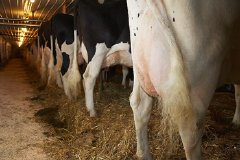Apr 27 2009
Making high-quality bricks from abundantly available cow dung – instead of depleting scarce firewood and clay – earned the EcoFaeBrick team from Prasetiya Mulya Business School in Indonesia the $25,000 top prize at the tenth annual Global Social Venture Competition at the University of California, Berkeley’s Haas School of Business this weekend.

With its sustainable business model EcoFaeBrick not only reduces building costs for rural Indonesians in the rapidly developing region of Godean and Sayegan, it also solves a major hygiene problem and promises attractive returns to its investors. EcoFaeBrick expects its business model to be feasible for any emerging area with rapid development and a high concentration of cattle farming.
The Global Social Venture Competition (GSVC) is an international competition founded by Berkeley MBA students that promotes the creation of social ventures with a measurable positive impact on society or on the environment – commonly known as the triple bottom line. Each participating venture must have at least one MBA student from an accredited business school on its management team.
This year, GSVC attracted a record 300+ plans from more than 100 universities in 23 countries.
The $10,000 second prize went to mPedigree Logistics from the Tuck School of Business, Dartmouth University. mPedigree Logistics provides pharmaceutical companies with anti-counterfeit solutions to the growing global counterfeit drug market via mobile marketing and supply chain technologies. Up to 30% of drugs sold in developing nations are fakes that contain little to no active ingredients or are laced with malicious chemicals, according to estimates by the World Health Organization.
SolarCycle from the George Washington University School of Business won the competition’s third prize of $5,000. The team’s primary innovation is a low-cost reflective material made from used plastic bags and the interior of metalized chip bags that can replace mirrors in solar concentrating applications for developing countries. The product would allow low-income urban Africans turn a local trash problem into solar-powered cooking and water pasteurization.
Judges also awarded a $5,000 Social Impact Assessment (SIA) prize for the team that best demonstrated the social impact or value creation in financial terms as part of their business plans. The prize went to BrightMind Labs from the University of Auckland, New Zealand, which applies the concept of electronic games to meet psychological needs of young people. At the moment BrightMind Labs is testing its first product, a game created to teach children on the autistic spectrum to recognize and respond to emotions. It plans to expand its immersive gaming concept for depression, anxiety, and post-traumatic stress disorder.
The competition was founded by five Berkeley MBA students in 1999. In its ten years, the competition has grown into a global partnership with Columbia Business School, London Business School, Indian School of Business, and Thammasat University (Thailand). It is supported by outreach partners from the University of Geneva (Switzerland), ESSEC Business School (France), ALTIS—Postgraduate School Business and Society at the Università Cattolica del Sacro Cuore di Milano (Italy), Yale School of Management, and a consortium of business schools in South Korea (Social Venture Competition Korea).